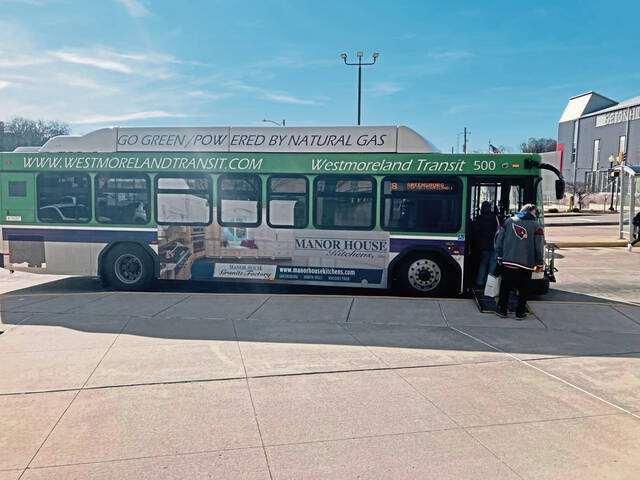https://triblive.com/opinion/editorial-why-should-a-transit-authority-have-to-pay-for-the-privilege-of-being-heard/
Editorial: Why should a transit authority have to pay for the privilege of being heard?

In a representative democracy, the people pick their lawmakers. The lawmakers then decide what laws to enact.
Over time, there has been an added layer. Lobbyists go to the lawmakers to advocate for their causes. Sometimes those causes are for things like cancer research or the environment. Sometimes they are more private or corporate in nature, such as mining or pharmaceuticals.
There is a time and place for lobbying. But the people — and the bodies of government that serve them — shouldn’t need lobbyists to reach their representatives. For example, a public transit authority should not have to hire a lobbyist to be heard in Harrisburg.
That is where the Westmoreland County Transit Authority found itself. The agency paid $48,000 a year to outside advocates.
The authority’s board voted last week to fire the lobbying firm Malady and Wooten. The decision wasn’t unanimous. There were questions about what the authority was getting for its money. They were valid concerns.
But this also wasn’t a choice to stop advocating. The authority will be looking at other proposals. But should they have to?
A small transportation agency serving seniors, disabled riders and workers already has limited funds. That money shouldn’t be spent fighting for the attention of the lawmakers elected to represent those riders.
Harrisburg runs on three forms of fuel: votes, voices and money. Lobbyists can be a loud voice and a conduit to cash. It’s hard for the voters to compete.
The system has created an environment in which lobbying becomes the yellow brick road to reach the halls of power. For a vital service like transit, that’s a rocky road.
How do we know? While Westmoreland was debating whether it could afford to keep paying for help, the state released a $50.1 billion budget with no new funding for public transit. Not just for tiny bus networks, but for the ones that shuttle people in our biggest cities. Pittsburgh Regional Transit (PRT) and the Philadelphia area’s Southeastern Pennsylvania Transit Authority (SEPTA) are staring down the same pitfalls.
Gov. Josh Shapiro proposed increasing the share of sales tax dedicated to transit — a change that would have generated hundreds of millions of dollars statewide. Lawmakers rejected it.
On Monday, Shapiro announced $219.9 million in capital funding to SEPTA for safety and infrastructure. While this is helpful for SEPTA, it just proves that the loudest voice for transit is the only one getting attention.
This is the environment in which transit authorities operate: a state unwilling to invest until it has no choice, and a political system in which public transit must fight to make those needs known.
That’s why Westmoreland hired lobbyists. The lack of funding is why they are needed, why they can’t be afforded and why they shouldn’t have to be hired in the first place.
Small agencies shouldn’t have to beg for scraps while lawmakers hold fundraisers. They shouldn’t have to buy attention. Are legislators really unaware that voters often rely on buses to get from home to work to school and back?
Transit is not a luxury. It’s a vital connection. And transit authorities shouldn’t need to pay someone to tell the people who already were elected to represent them.
Copyright ©2026— Trib Total Media, LLC (TribLIVE.com)
